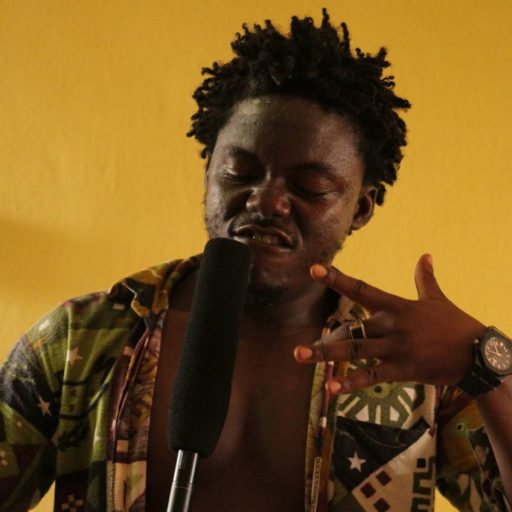
Konya Shamsrumi: What is the process of writing a poem like for you? Is it a lot of hard work or easy?
Nyachiro Lydia Kasese: I’m not entirely sure that I have a process of writing my poetry. It sort of comes to me at random moments. A line or phrase will pop up in my head and I always take that as a sign that I need to write and so I’ll stop whatever it is I am doing to write it down.
Is it hard or easy? When the poems come to me it’s rather easy, I could write a whole bunch of poems in a couple of hours. The problem is when nothing comes to me for days or week’s or months and it’s frustrating. But now I’ve gotten to a point where when I’m having a dry spell, I take it as an opportunity to explore other forms of writing like short stories.
Konya Shamsrumi: Please describe your sense of identity in this or any possible world in imagery or metaphor?
Nyachiro Lydia Kasese: This is a really difficult question to answer. I’m not entirely sure what I identify as. I don’t like labels or being boxed in by a word. I think that a lot of labels or words we use to identify ourselves are part of a social construct, or a way for society to make sense of things or organise things by boxing them. I often fail to fully locate myself in a label.
For instance, I don’t consciously think of myself as a woman, not that I think of myself as a man. I just feel that my body is in the form of a woman. I am just a spirit/soul in a vessel that took the shape of a woman. I feel weird when people describe me as a woman; the label doesn’t seem to fit me well in my mind.
This response may sound weird considering that I write a lot about women. I can’t help that because my experiences in this world will always be in relation with the vessel that my soul resides in – that is, a woman’s body. As a result I will have the experiences of a woman.
I could go on and on.
Konya Shamsrumi: If any of your poems could literally save a person’s life, which poem would it be and can you describe the person whose life you think it would have saved?
Nyachiro Lydia Kasese: As opposed to answering about saving a person’s life, can I answer about it saving my life?

When I started writing, I did not write with the intentions of an audience let alone being published. I was writing for myself as a way to get rid of the craziness in my head. Most of the poems in my first collection, Paper Dolls, were initially diary entries. I have often written to save myself. I am not good at verbally expressing myself. When it comes to expressing negative feelings, I normally just shut down emotionally. But in writing I find my voice and can write for hours.
It’s hard for me to say which poem I would pick as the one that saved me. It feels like having to pick a favourite from multiple children that I love. It feels unfair.
Konya Shamsrumi: What does Africa mean to you, as potential or reality?
Nyachiro Lydia Kasese: Home. Familiarity.
Konya Shamsrumi: Could you share with us one poem you’ve been most impressed or fascinated by? Tell us why and share favourite lines from it.
Nyachiro Lydia Kasese: Currently my favourite poet is Safia Elhillo. I am in awe of her writing, not just the stories she tells in them but also the structure and style of it. I think I’m becoming more and more fascinated by how people tell stories (be it poetry, short stories, film, etc) as opposed to what stories they tell. I think that there are no new stories to be told, we have heard them all in one variation or the other, but it is how we tell those stories that makes us keep reading.
I have so many favourite poems of hers but I’ll go with:
application for asylum
how did you learn fear?
i crossed a body of water
how did you learn fear?
i grew a new american body it was the summer [ ] died
& now?
i don’t like to be touched
Read the rest here
Nyachiro Lydia Kasese is a Tanzanian writer, poet and media specialist among other things. Her first collection of poetry Paper Dolls was published in 2016 by the African Poetry Book Fund in their chapbook collection, New – Generation African Poets: Tatu. Her poem Things That Were Lost In Our Vaginas was shortlisted by the BNPA poetry prize in 2014 and her short story Inside Outside was long listed by Writivism in the same year. In 2017, her short story, My Mother’s Project was published in the Caine Prize 2017 Anthology, The Goddess of Mtwara.
- Poets Talk: 5 Questions with Chika Jones - April 9, 2018
- Poets Talk: 5 Questions with Nyachiro Lydia Kasese - February 28, 2018
- Heart of Poetry: Tsenongu Moses Terhemba’s On His Neglect of Prose by Ismail Bala - February 6, 2018

















This is an engaging interview, I must say. Kasese is no doubt one of Africa’s finest poet. Her responses are quite revealing and lay patterns to explore in poetic engagements. Kudos!